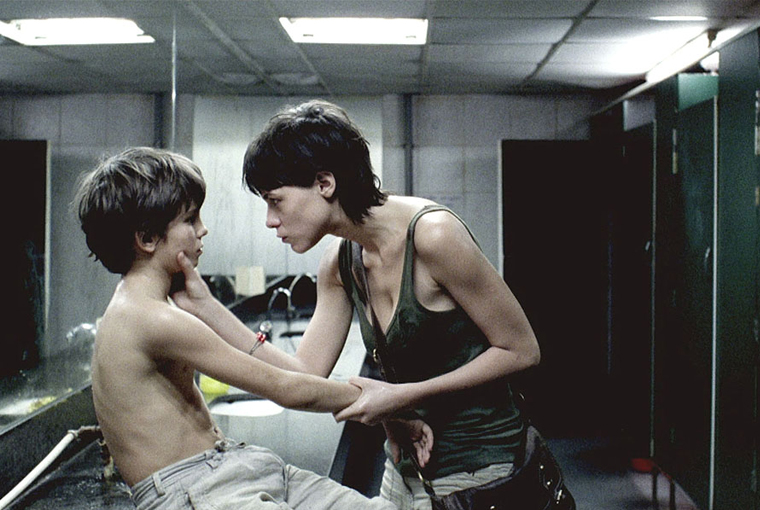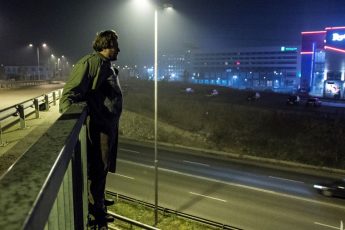The Bitterness of Being Free
Bogdan George Apetri’s Periferic (Outbound, 2010)
Vol. 12 (December 2011) by Ana Ribeiro
Periferic tells the story of Matilda, a prisoner that receives a 24 hour leave to go to the funeral of her mother. Matilda, however, has other plans: she decides to escape. Helped by a truck driver – their relationship, as well as Matilda’s crime, is never made clear -, in exchange for money, her first chore is to get to the port city of Constanta. But then, all of a sudden, she changes her mind and goes to her brother’s house who rejects her. He is the first person to have interrupted Matilda’s plans that day.
Periferic is divided in three parts, each part relating to the men Matilda encounters during her journey. The film starts with “Andrei, 8 a.m.”. Andrei is her brother, the one who wouldn’t let her into his house. He also refuses to give Matilda any money, corroborating with his wife’s hostile behavior towards Matilda. They nevertheless accept to take Matilda to the funeral. Her presence at the funeral is not really wanted by any of the family members, and her wild mannerisms do not help to alter this scenario. In the end, she steals some money from her brother and runs away.
This is where the second part begins: “Paul, 1p.m.”. Paul is Matilda’s ex-lover and the father of her son, Toma. We learn then that he was involved in Matilda’s crime. They had a deal where he would give her some money when she left jail. Paul is a fraud with a dubious business. He tries everything in order to cheat Matilda, not wishing to give her the money promised. In turn, Matilda tries everything to obtain it. Knowing her ex, she even has sex with him: a violent, mechanical, unwilling sexual encounter, which is practically rape. Even then, he resists to fulfill his side of the deal. When they start fighting in the car, they have an accident, but Matilda manages to find the money Paul owed her and escapes. Having learned that Paul put their child into an orphanage, she once again reneges on her deal with the truck driver and, instead of going with him to Constanta, decides to look for her son.
In the last part of the film, “Toma, 4 p.m.”, Matilda goes to the orphanage where she learns that Toma is being exploited by some of his colleagues. But she finally finds Toma, and takes him with her to Constanta by train. Once again, she is deceived. The eight year old boy, already a smoker, takes advantage of a moment when his mother is asleep, steals her money and leaves the train alone before the final destination.
Periferic is a film about loneliness and betrayal. Like in Ruxandra Zenide’s Ryna, the female protagonist is a victim of the men surrounding her. Matilda looks for three men, and all of them reject or refuse to be honest with her. The only one who helps her is the truck driver, but only because there is profit involved. Through her dialogues with Paul, it becomes clear that he exploited her in the past, and that her arrest was somehow related to him.
Matilda is deceived by all the men she encounters: her brother, her ex-lover and finally her son; who are also the only people she would have a count on. Her day out of jail grants her one day of freedom, but it doesn’t guarantee her a right of happiness. Her decision to escape is made in order to search for a new, happy life, but this objective is denied by all the men in her way; with their rejection, she’s also being denied a right to be loved. Her son’s betrayal is the ultimate coup de grace. She is alone, and this is how she will remain: she’s peripheral – periferic – to all the men around her, being of the least importance to them. In their turn, these men constitute Matilda’s periphery, as hostile as it can be. Her freedom is bittersweet, as, according to film critic Magda Mihailescu’s words, “is life in Romania”. Whether an exaggeration or not, this is the tone of Apetri’s film.




Leave a Comment